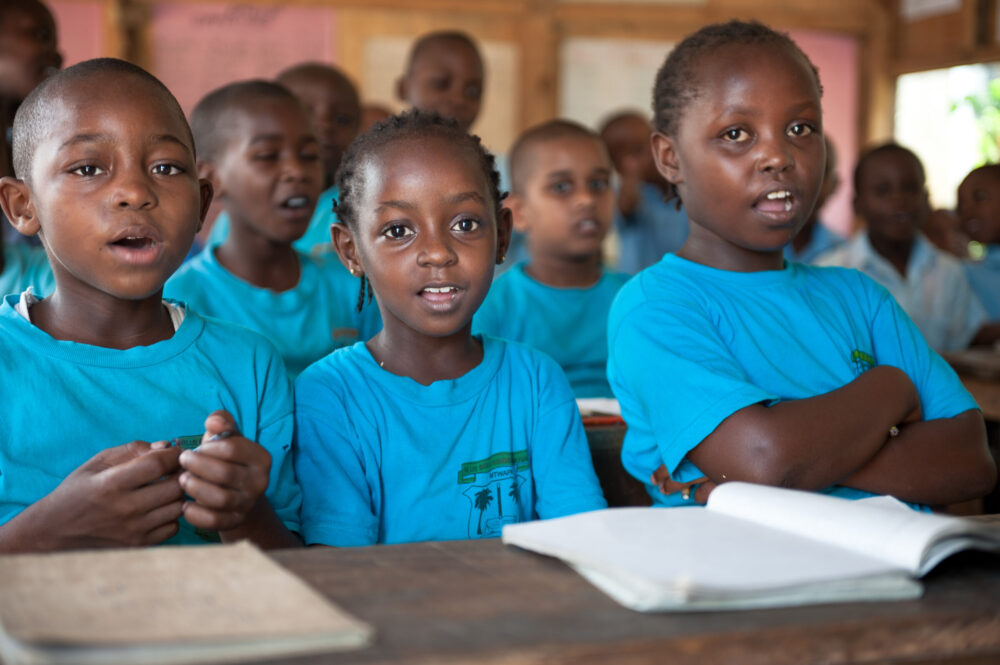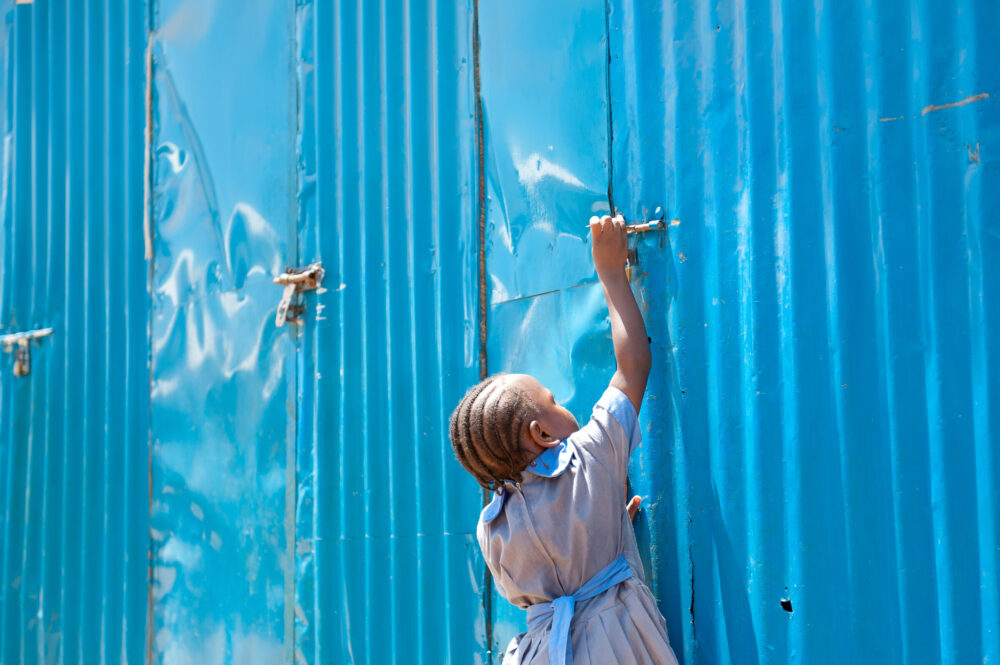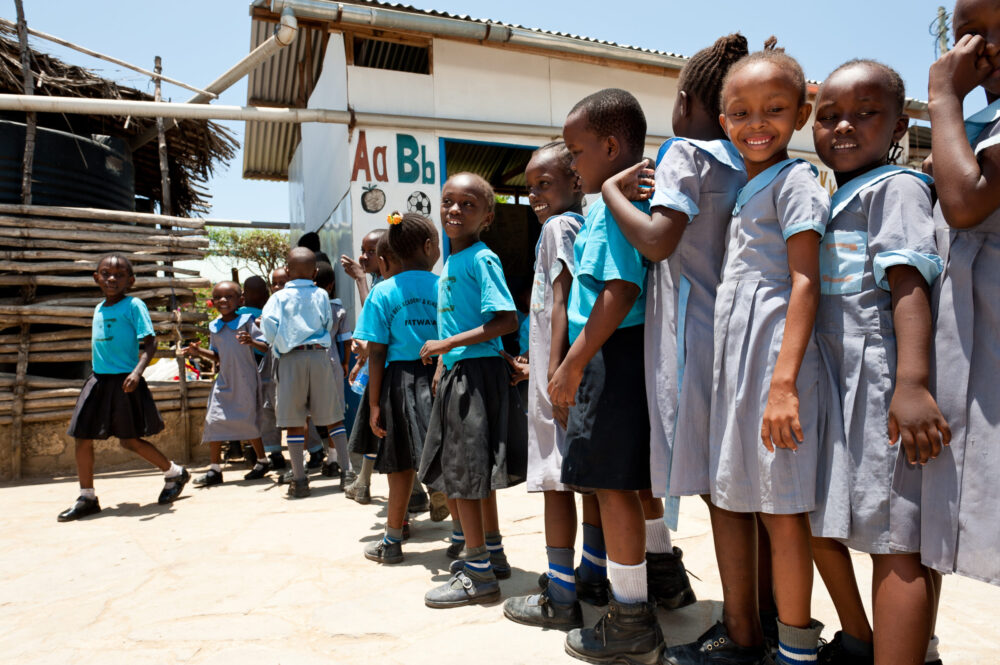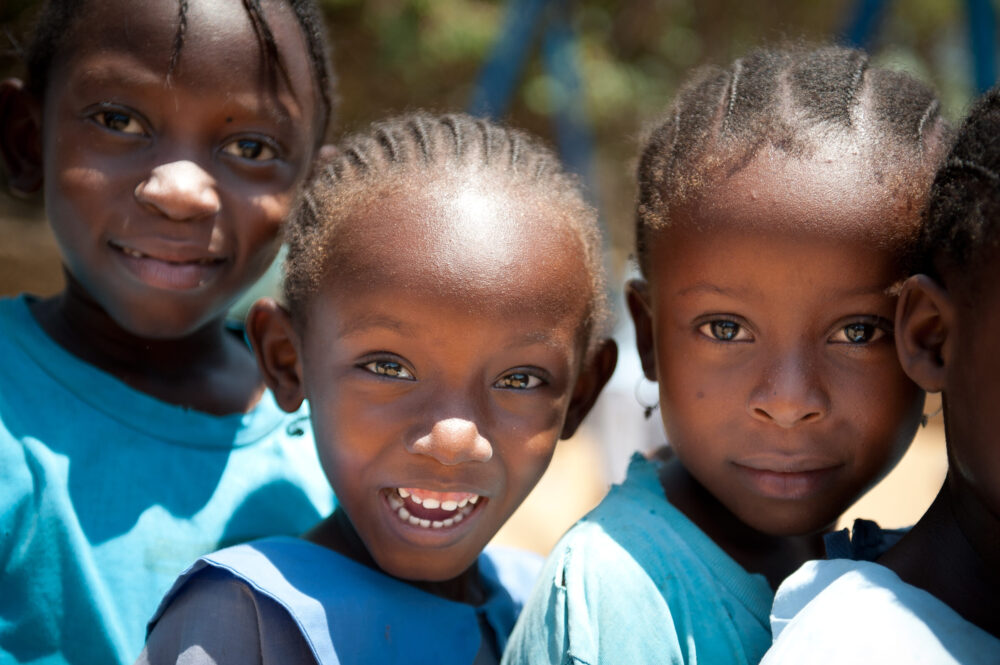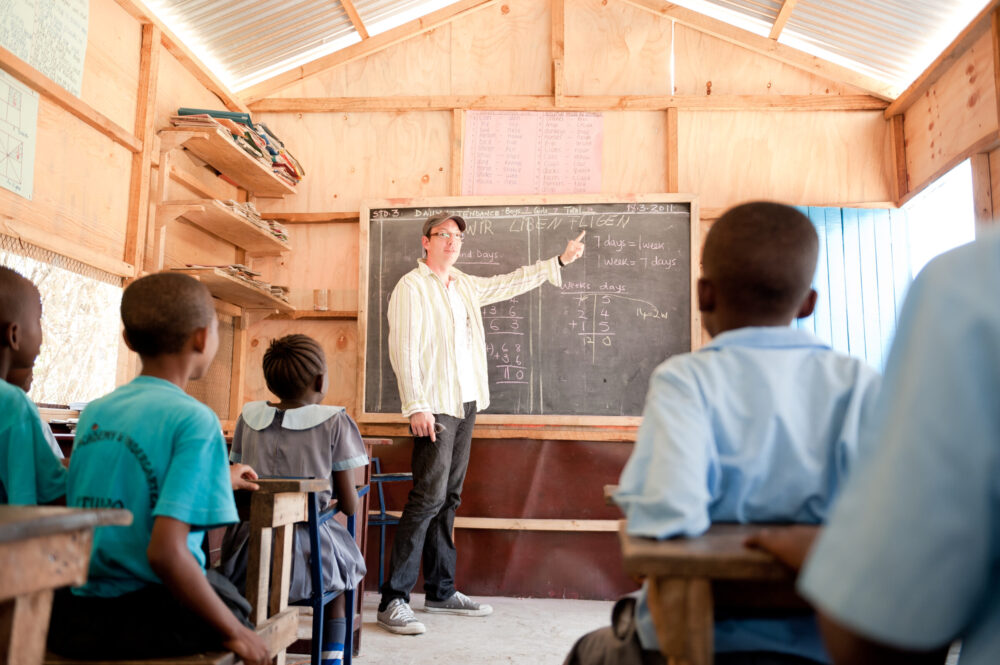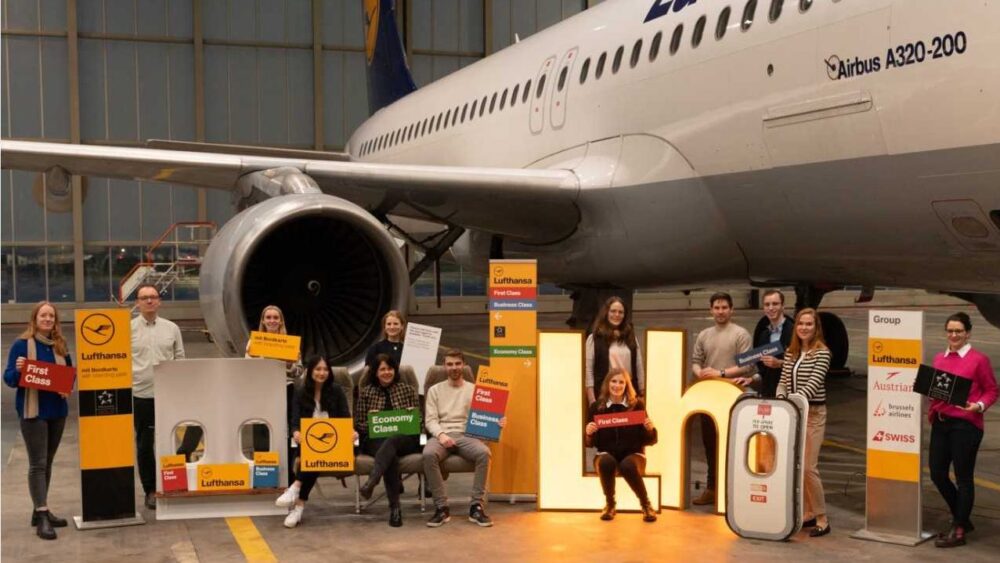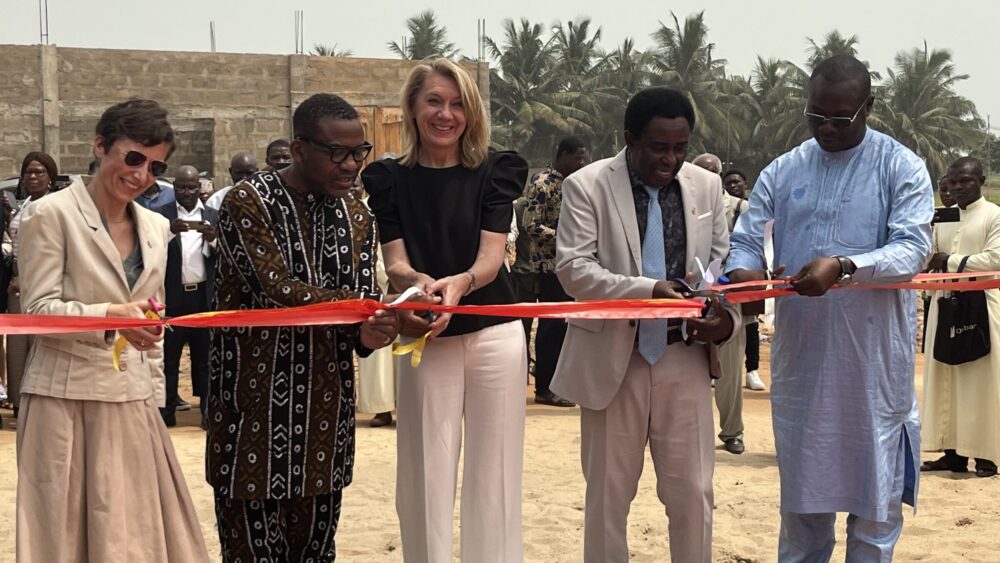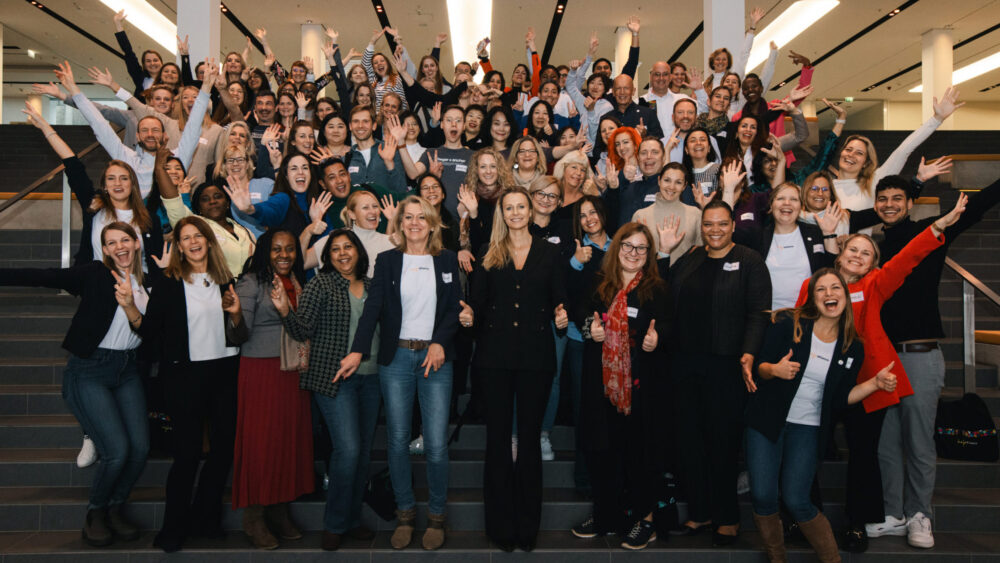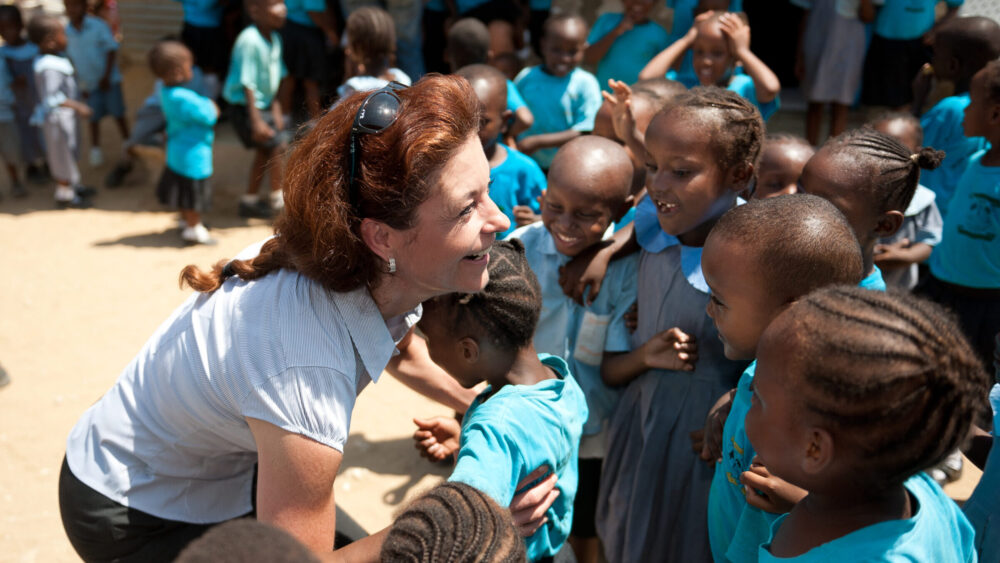
“I wish for our children to find their happiness and future in their own country”
Interview with Kerstin Auersch
Kerstin Auersch, Cabin Crew Manager Flight Attendant at Lufthansa, is a volunteer project coordinator of the Blue Bell Kindergarten in Mtwapa, Kenya with heart and soul. In an interview, she talks about the coincidence that brought her to her project, the success of the project and her wishes for the future.
What do you do at Lufthansa?
I work as Cabin Crew Manager Flight Attendant. Before that I worked as a flight attendant and as a purser on board. In my current job, I am responsible for about 600 flight attendants. My responsibilities include staff development, quality and performance management, information, care and health management, but also all disciplinary issues. For example, I accompany new flight attendants through their training and probationary period and conduct development discussions with them.
How did you come to Blue Bell?
All by chance! Our project practically fell on our feet. Back then I was still a purser at Condor. Together with a friend I was working on a flight to Mombasa. That was unusual and an exception that we flew together, because it is rare to plan two Purser on one flight.
Since the flight was in the rainy season, and Condor therefore flew less often, we had a 5-day stay there. Together we went to the beach for a massage. We already knew the girls who massaged us. They told us that in the meantime they had received a condition from the city hall that they had to support a social project in order to be allowed to continue massaging on the beach. Every Saturday the ten women met and each one donated a part of their earnings and from this they bought food for orphans. They offered us to go there with them. Together we went to Mtwapa. There we met 40 children who stayed in a small room which was used as a prayer room for the church in the evening. Everything was very poor. There was no water, no toys, no crayons and paper, no green outside – everything was sandy and clay-coloured. But the children were beaming and smiling at us. A trained primary school teacher was there to look after the children. We told our crew about it at dinner and all of them donated money. Then we went and bought the basics for a school. Pens, notebooks, paper, balls, plastic chairs etc. and brought them to the children.
So how did you come to the help alliance?
Back in Germany these impressions never let us go. That was in 2006. 2002 Condor started the “On Board Collection” for help alliance and we had the idea to contact our internal aid organisation. We made an appointment with Rita. We sat together for 5 hours and reported about our experiences. Rita was enthusiastic and said that we would surely be able to work something out. She gave us the application and told us to think about the budget and the time frame.
Since October 2006 help alliance supports the project “Blue Bell Kindergarten”. For our first application we had fixed a duration until 2008. Already in December 2007 we rented a larger plot of land and built a combined kindergarten and school facility. Grace, who was in charge of the children at that time, became headmistress. By the end of 2008 the number of children tripled. In the meantime 270 children attend our school.
There is a baby class for the ages 1-3, three kindergarten or preschool classes and primary school classes for grades 1-8.
I would like the school to be self-sustaining at some point. It is a private school and the parents pay fees for the children’s lessons and lunch. But we also support them financially – we have also financed renovations and additions such as rainwater tanks. Actually we would have liked to build a well, but the owner of the land did not allow us to do so – we had first thought of buying a plot of land – the financing for this was secured – but with the unclear ownership situation on site it could have been that a few months later someone would stand there and claim it to be his land.
Since 2 years we offer swimming lessons for the children – and teachers. 40 children of the 4th and 5th grade are going once a week to learn how to swim with Salim, a fireman who is also a rescue diver with the Mombasa Fire Department. Last year we started the project C.A.R.T. an idea of our swimming teacher Salim – the Coast Aquatic Rescue Team. Some Blue Bell students are trained as lifeguards. In the first year the C.A.R.T. team was able to save 8 people from drowning on the long coast of Mombasa.
What happens after the 8th grade for the children?
The first year will be finishing this year. The classes are thinning out. In the higher classes there are less children than when they started. This is because many older children already have to earn money. Mtwapa is also known as the “pull of crime”. Many unpleasant things happen there.
But our children do well in the national tests and are at a good level of education. The question is whether the parents can afford secondary school. But at least the children have learned to read and write really well, as well as having developed social skills and very good English.
Students from the University of Groningen visited three projects in Kenya a few years ago. For Blue Bell, they created a simple Excel program that makes accounting easier. They were involved in a fire brigade project and also worked in the projects of the Freundeskreis Ostafrikahilfe. For example, they did job and application training with the young people in a school, but also thought about where the young people of Blue Bell could earn money in the future.
What challenges did the project pose for you?
The political situation in Kenya has been difficult for years. Both the proximity of the region to Somalia and the pirates, as well as the influence of Islamic terrorists have a major impact on the main source of income for the coastal population – tourism. However, most people in and around Mombasa live from services. If the tourists stay away, there is less work and the situation gets worse due to unemployment. This is a vicious circle that has to be broken.
In addition, we often face the situation that we have to realize that there is a lack of foresight in Kenya. It is rather unusual to think in the long term. Grace always tells us at very short notice if something is needed or if she notices, for example, that there is one classroom missing for her students in the next school year. Of course there are always communication difficulties and tasks to be done are quickly forgotten. Nevertheless, we are still proud of the development.
What was your best experience at Blue Bell?
The joy of the children when you come to visit them. In the beginning it was curiosity and shyness, but especially after the move to the new premises they were really happy to see us. But there were so many wonderful moments. The first swimming lessons. But the most beautiful are the shining eyes of the children that tell you: “You did everything right.”
What wishes do you have for your project for the future?
That it continues for the children after eighth grade. Either in a secondary school or that they can earn their living with the knowledge, skills and social competence they have acquired. That they pass all this on to their own children and manage to break the endless circle of poverty in Mtwapa.
That our children find their happiness and their future in their own country and provide their knowledge to their country.
What did you learn about yourself?
To be more humble with what we have here. To be more grateful and not to take everything for granted but to protect and appreciate it.
You have had experience with the On Board Collection. What tips can you give to other Purser?
The best way is to bring empathy into the announcement and let stories and pictures arise in the minds of the passengers. For example, back at Condor we said: “We have 230 guests on board today, if everyone donates just 10 cents we can pay for x vaccinations against yellow fever. That brings transparency and shows what even small sums can achieve.
What can you recommend to others who want to get socially involved?
Open your eyes and ears, no matter where you are in the world. Be curious. Get involved and sometimes go the complicated way abroad. Not only visit the sights but also take a look behind the scenes. Asking questions to locals and being open. Then you can feel very quickly where you want to help.

